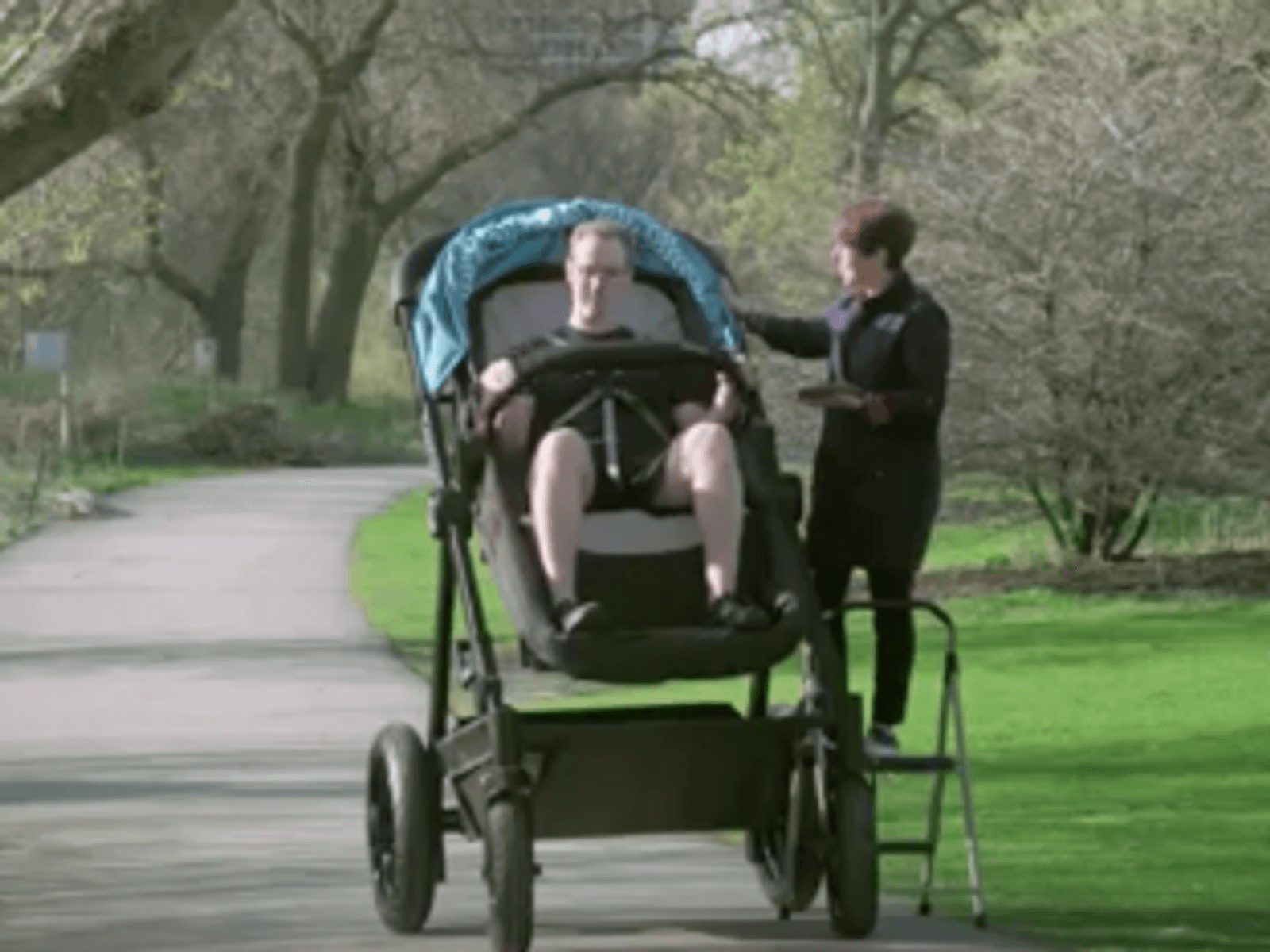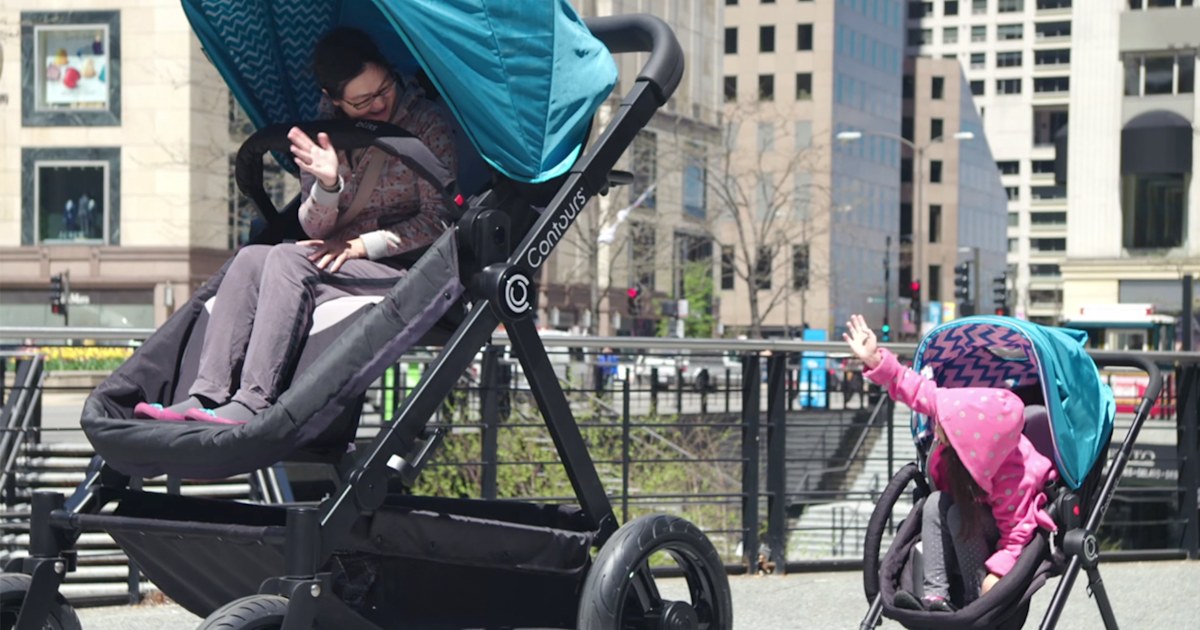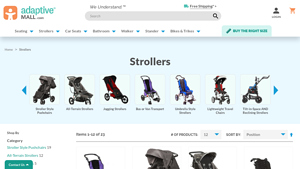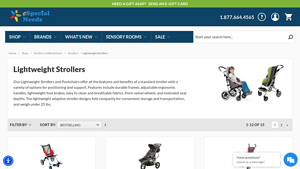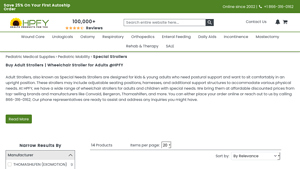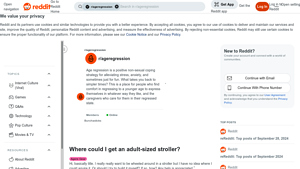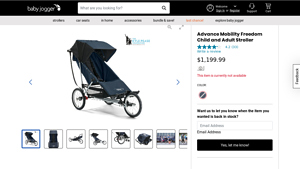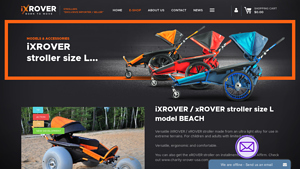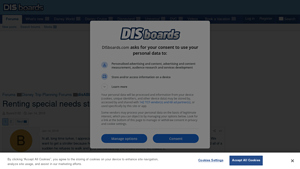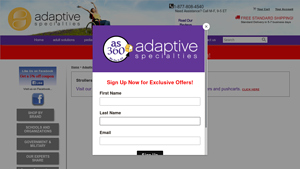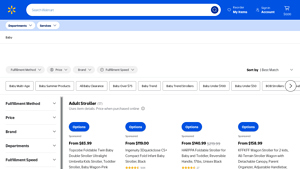Adult Stroller Guide: Type,Cost,Material…
Introduction: Navigating the Global Market for adult stroller
In today’s global market, sourcing high-quality adult strollers presents unique challenges for B2B buyers, particularly those focused on meeting the needs of individuals with special requirements. As the demand for adaptive mobility solutions increases across regions such as Africa, South America, the Middle East, and Europe—including countries like Saudi Arabia and Nigeria—understanding the nuances of adult strollers becomes essential. This guide serves as a comprehensive resource, exploring various types of adult strollers, their applications, and the critical factors to consider when selecting suppliers.
Buyers will gain insights into the diverse categories of adult strollers, including lightweight models, all-terrain options, and specialized designs that cater to specific medical needs. Additionally, this guide delves into supplier vetting processes, highlighting the importance of assessing product quality, compliance with international standards, and the reputation of manufacturers. Cost considerations are also addressed, providing actionable strategies to balance quality with budget constraints.
By equipping B2B buyers with the knowledge and tools needed to make informed purchasing decisions, this guide empowers businesses to navigate the complexities of the adult stroller market effectively. In doing so, it helps ensure that they can provide their clients with reliable, safe, and comfortable mobility solutions tailored to the unique needs of individuals requiring additional support.
Understanding adult stroller Types and Variations
| Type Name | Key Distinguishing Features | Primary B2B Applications | Brief Pros & Cons for Buyers |
|---|---|---|---|
| Adaptive Strollers | Customizable seating, enhanced postural support, safety features | Healthcare facilities, rehabilitation centers | Pros: Tailored to individual needs; Cons: Higher cost due to customization. |
| Lightweight Strollers | Compact design, easy to transport, under 25 lbs | Travel agencies, home care services | Pros: Portability; Cons: May lack durability for rough terrain. |
| All-Terrain Strollers | Robust wheels, suspension systems for uneven surfaces | Outdoor therapy programs, adventure tourism | Pros: Versatile for various environments; Cons: Heavier and bulkier. |
| Tilt-in-Space Strollers | Adjustable seating positions, facilitates comfort and support | Long-term care facilities, special needs schools | Pros: Enhances user comfort; Cons: Can be complex to operate. |
| Jogging Strollers | Designed for active use, shock-absorbing features | Fitness programs, rehabilitation therapy | Pros: Promotes physical activity; Cons: Not suitable for all terrains. |
What Are the Characteristics of Adaptive Strollers?
Adaptive strollers are specifically designed to provide enhanced support and comfort for individuals with special needs. They often feature adjustable seating positions, safety harnesses, and additional support structures. These strollers can be customized to accommodate various physical needs, making them ideal for healthcare facilities and rehabilitation centers. When purchasing, consider the level of customization required, as well as the potential for insurance reimbursement.
How Do Lightweight Strollers Differ from Other Types?
Lightweight strollers stand out due to their compact design, typically weighing under 25 lbs. This makes them highly portable and easy to transport, which is particularly beneficial for travel agencies and home care services. Their design often includes durable frames and easy-to-clean fabrics, but buyers should weigh the benefits of portability against potential limitations in durability and stability on uneven surfaces.
What Makes All-Terrain Strollers Suitable for Outdoor Use?
All-terrain strollers are built with robust wheels and advanced suspension systems, allowing them to navigate uneven surfaces effectively. This makes them particularly suitable for outdoor therapy programs and adventure tourism, where diverse terrain is common. While these strollers offer versatility, buyers should note their bulkier design and increased weight, which may affect ease of transport.
Why Choose Tilt-in-Space Strollers for Long-Term Care?
Tilt-in-space strollers are designed to provide adjustable seating positions, which can significantly enhance user comfort and support. They are particularly advantageous in long-term care facilities and special needs schools, where prolonged sitting is common. However, the complexity of operation can be a drawback, requiring training for caregivers to ensure safe usage.
What Are the Benefits of Jogging Strollers in Rehabilitation Therapy?
Jogging strollers are specifically designed for active use, featuring shock-absorbing systems that provide a smooth ride. They promote physical activity, making them suitable for fitness programs and rehabilitation therapy. While they encourage an active lifestyle, buyers should consider their limitations on certain terrains and the need for a caregiver’s supervision during use.
Key Industrial Applications of adult stroller
| Industry/Sector | Specific Application of Adult Stroller | Value/Benefit for the Business | Key Sourcing Considerations for this Application |
|---|---|---|---|
| Healthcare | Rehabilitation Centers | Enhances mobility for patients requiring assistance. | Ensure strollers comply with medical standards and regulations. |
| Education | Special Needs Schools | Provides mobility support for students with disabilities. | Look for customizable options to accommodate various needs. |
| Hospitality and Tourism | Accessible Travel Services | Improves accessibility for disabled tourists. | Prioritize lightweight, foldable designs for easy transport. |
| Community Services | Non-Profit Organizations | Facilitates community outreach for individuals with mobility issues. | Source durable models that can withstand frequent use. |
| Retail and Shopping | Shopping Malls and Stores | Enhances customer experience by accommodating all shoppers. | Consider strollers with ample storage for shopping convenience. |
How is Adult Stroller Utilized in Healthcare Settings?
In rehabilitation centers, adult strollers serve as essential mobility aids for patients who have limited walking capabilities. These strollers are designed with features like adjustable seating and safety harnesses to ensure patient comfort and security. For international buyers, particularly in regions like Africa and the Middle East, sourcing strollers that meet local healthcare regulations and standards is crucial. Additionally, products should be durable enough to withstand daily use in busy healthcare environments.
What Role Do Adult Strollers Play in Educational Institutions?
Special needs schools utilize adult strollers to provide mobility support for students with disabilities. These strollers often come with customizable features to cater to individual needs, ensuring students can participate fully in school activities. Buyers from Europe and South America should focus on strollers that are lightweight and easy to maneuver within classroom settings. Moreover, it is vital to consider the availability of replacement parts and service support to maintain the equipment’s longevity.
How Do Adult Strollers Enhance Accessibility in Hospitality and Tourism?
In the hospitality sector, adult strollers are increasingly used to improve accessibility for disabled tourists. Hotels and travel services provide strollers to enhance guest experiences, allowing for easier navigation through facilities and local attractions. For businesses in regions like Saudi Arabia and Nigeria, sourcing strollers that are not only durable but also aesthetically pleasing can significantly impact customer satisfaction. Lightweight and foldable designs are essential for easy transport and storage.
Why Are Adult Strollers Important for Community Services?
Non-profit organizations often employ adult strollers to assist individuals with mobility challenges during community outreach programs. These strollers enable organizations to provide necessary support while engaging with the community effectively. For buyers in South America and Africa, selecting strollers that are robust and capable of handling diverse terrains is essential. Ensuring that these strollers are cost-effective can also maximize the impact of funding in community service initiatives.
How Can Retail Environments Benefit from Adult Strollers?
In retail settings, adult strollers enhance the shopping experience for customers with mobility impairments, allowing them to navigate stores with ease. Retailers can benefit from increased foot traffic and customer loyalty by accommodating shoppers’ diverse needs. International buyers should consider strollers with ample storage space and durability to withstand heavy use in busy shopping environments. Additionally, ensuring compliance with local accessibility laws can enhance a retailer’s reputation and customer base.
3 Common User Pain Points for ‘adult stroller’ & Their Solutions
Scenario 1: Limited Customization Options for Diverse User Needs
The Problem: Many B2B buyers, particularly those supplying care facilities or adaptive equipment stores, encounter challenges with adult strollers that lack sufficient customization options. Users often have varying needs due to different physical abilities, which can range from limited mobility to complex medical requirements. A one-size-fits-all solution may not provide the necessary postural support or comfort, leading to dissatisfaction and potential safety issues.
The Solution: To address this issue, buyers should seek suppliers that offer a range of customizable features in adult strollers. This includes adjustable seating positions, specialized harnesses, and additional support structures tailored to individual requirements. When sourcing strollers, it is essential to conduct thorough research on manufacturers known for their commitment to adaptability. Requesting product demonstrations or trials can also provide insights into how well these strollers meet specific user needs. Establishing a relationship with manufacturers that have a strong reputation for providing tailored solutions can significantly enhance customer satisfaction and improve user outcomes.
Scenario 2: Challenges in Portability and Transport
The Problem: B2B buyers often struggle with adult strollers that are cumbersome and difficult to transport. This is particularly relevant for businesses operating in regions with diverse terrains or limited transportation options, such as parts of Africa or South America. Strollers that are not lightweight or easily foldable can deter caregivers and users, impacting the overall usability and accessibility of these vital mobility aids.
The Solution: Buyers should prioritize lightweight and compact designs when sourcing adult strollers. Models that weigh under 25 lbs and feature quick-fold mechanisms are ideal for ease of transport. It’s beneficial to evaluate the stroller’s frame material and design to ensure it meets durability standards without compromising weight. Additionally, incorporating feedback from end-users and caregivers can guide purchasing decisions, ensuring the selected strollers align with practical transport needs. When negotiating with suppliers, emphasize the importance of transport-friendly features and inquire about their range of lightweight models, ensuring that the final selection enhances mobility and convenience for users.
Scenario 3: Difficulties in Maintenance and Cleaning
The Problem: Adult strollers often face rigorous use in various environments, leading to wear and tear that can complicate maintenance. B2B buyers, especially those in healthcare or rehabilitation sectors, need to consider how easy it is to clean and maintain the equipment. Strollers that are difficult to disassemble or clean can lead to hygiene concerns and increase operational costs due to frequent replacements.
The Solution: Buyers should opt for adult strollers designed with easy maintenance in mind. Features such as removable, machine-washable covers and frames that can be easily wiped down can significantly reduce cleaning time and effort. It is advisable to request detailed maintenance guidelines from manufacturers to understand the care requirements of each model. Additionally, establishing a routine maintenance schedule and training staff on proper cleaning procedures can prolong the lifespan of the strollers and enhance user safety. Engaging with suppliers who prioritize user-friendly designs can also ensure that the strollers meet high hygiene standards, thereby fostering a safe and clean environment for all users.
Strategic Material Selection Guide for adult stroller
What Are the Key Materials Used in Adult Stroller Manufacturing?
When selecting materials for adult strollers, it is essential to consider the properties and performance of various materials. Here, we analyze four common materials used in the construction of adult strollers: aluminum, steel, plastic, and textiles. Each material has unique characteristics that can impact durability, cost, and suitability for specific applications.
How Does Aluminum Perform in Adult Stroller Applications?
Aluminum is a lightweight metal known for its high strength-to-weight ratio. It typically has excellent corrosion resistance, making it suitable for outdoor use and environments with high humidity or exposure to moisture. Aluminum can withstand temperatures ranging from -40°C to 70°C, ensuring functionality in diverse climates.
Pros: Aluminum strollers are easy to maneuver, making them ideal for urban settings. They are also resistant to rust, which is advantageous in regions with high rainfall.
Cons: While aluminum is durable, it can be more expensive than other materials like steel. Additionally, it may not provide the same level of structural integrity under heavy loads, which could be a concern for larger users.
Impact on Application: Aluminum is compatible with various finishes and coatings, enhancing aesthetics and providing additional protection. However, international buyers should ensure compliance with local standards for weight capacity and safety.
What Are the Advantages of Steel in Adult Stroller Construction?
Steel is another popular material for adult strollers, known for its robustness and durability. It typically has a higher tensile strength than aluminum, making it suitable for heavy-duty applications. Steel can withstand extreme temperatures and has good corrosion resistance when properly coated.
Pros: Steel strollers are often more affordable than their aluminum counterparts and can support heavier weights, making them suitable for a broader range of users.
Cons: The primary drawback of steel is its weight, which can make strollers less portable. Additionally, if not treated correctly, steel can rust, particularly in humid environments.
Impact on Application: Steel’s strength makes it ideal for strollers designed for rugged terrains. Buyers in regions like Africa and South America may prefer steel for its durability, but they should consider the need for protective coatings to prevent corrosion.
How Do Plastics Contribute to Adult Stroller Design?
Plastics, particularly high-density polyethylene (HDPE) and polypropylene, are frequently used in various components of adult strollers, including seats and frames. These materials are lightweight, flexible, and resistant to moisture and UV radiation.
Pros: The use of plastics can significantly reduce the overall weight of the stroller, making it easier to transport. They are also cost-effective and can be molded into complex shapes, allowing for innovative designs.
Cons: While plastics are durable, they may not offer the same strength as metals. They can also become brittle over time, especially when exposed to extreme temperatures.
Impact on Application: Plastics are suitable for various climates and are often easier to clean, which is a significant advantage for caregivers. International buyers should ensure that the plastics used meet safety and health regulations, particularly in regions with strict compliance standards.
What Role Do Textiles Play in Adult Stroller Functionality?
Textiles are crucial for the comfort and usability of adult strollers. Fabrics used for seats and harnesses must be breathable, durable, and easy to clean. Common materials include polyester and nylon, which offer good resistance to wear and tear.
Pros: Textiles can enhance user comfort and are available in various colors and patterns, allowing for customization. They are also lightweight and can be treated for water resistance.
Cons: Textiles may require regular maintenance to prevent wear and fading. Additionally, they can absorb moisture, which may lead to mold growth if not properly cared for.
Impact on Application: The choice of textile can significantly affect the stroller’s usability in different climates. For instance, breathable fabrics are essential in hot regions like Saudi Arabia, while water-resistant options may be preferred in areas with high rainfall.
Summary of Material Selection for Adult Strollers
| Material | Typical Use Case for Adult Stroller | Key Advantage | Key Disadvantage/Limitation | Relative Cost (Low/Med/High) |
|---|---|---|---|---|
| Aluminum | Lightweight strollers for urban use | High strength-to-weight ratio | Higher cost, less load capacity | Medium |
| Steel | Heavy-duty strollers for rugged terrains | Excellent durability and strength | Heavier, potential for rust | Low |
| Plastic | Components like seats and frames | Lightweight and cost-effective | Less strength, can become brittle | Low |
| Textiles | Seat covers and harnesses | Customizable and comfortable | Requires maintenance, moisture absorption | Medium |
This guide provides a comprehensive overview of the materials commonly used in adult strollers, highlighting their properties, advantages, and considerations for international B2B buyers. Understanding these factors can facilitate informed purchasing decisions that meet the diverse needs of users across different regions.
In-depth Look: Manufacturing Processes and Quality Assurance for adult stroller
What Are the Key Stages in the Manufacturing Process of Adult Strollers?
The manufacturing of adult strollers involves several critical stages, each designed to ensure the final product meets the highest standards of safety, comfort, and usability. The primary stages include material preparation, forming, assembly, and finishing.
-
Material Preparation: This initial stage involves selecting high-quality materials such as aluminum, steel, and durable fabrics that can withstand wear and tear. Manufacturers often opt for lightweight yet robust materials to enhance portability. Additionally, materials undergo rigorous inspections to ensure they meet specific safety and durability standards.
-
Forming: The forming stage encompasses shaping the materials into components like the frame, seat, and wheels. Techniques such as extrusion for aluminum and injection molding for plastic parts are commonly used. Advanced technologies like CNC machining may also be employed to ensure precision in component manufacturing.
-
Assembly: During the assembly phase, individual components are brought together to form the complete stroller. This involves a combination of automated and manual processes, ensuring that all parts fit together seamlessly. Key aspects such as the integration of safety harnesses, braking systems, and adjustable features are meticulously checked during this stage.
-
Finishing: The final stage involves surface treatments, such as powder coating or anodizing, to enhance aesthetics and protect against corrosion. Quality checks are conducted to ensure that the finish is uniform and free from defects, contributing to the overall durability and appeal of the stroller.
How Is Quality Assurance Integrated into Adult Stroller Manufacturing?
Quality assurance (QA) is a fundamental aspect of the manufacturing process for adult strollers, ensuring that products not only meet but exceed international safety standards. Manufacturers typically implement a multi-tiered QA system that adheres to various international standards.
-
International Standards Compliance: Many manufacturers align their processes with ISO 9001, which provides a framework for quality management systems. Compliance with CE marking requirements is also critical, particularly in Europe, as it signifies that the product meets health, safety, and environmental protection standards.
-
Industry-Specific Certifications: In addition to general quality standards, manufacturers may pursue certifications specific to mobility devices, such as those from the American National Standards Institute (ANSI) or the American Society for Testing and Materials (ASTM). These certifications offer additional assurance regarding the safety and performance of the strollers.
What Are the Key Quality Control Checkpoints in Adult Stroller Manufacturing?
To maintain high-quality standards, manufacturers implement several quality control checkpoints throughout the production process:
-
Incoming Quality Control (IQC): This initial checkpoint involves inspecting raw materials upon arrival at the manufacturing facility. Materials are evaluated for compliance with specifications, ensuring that only the highest-quality components proceed to the next stages.
-
In-Process Quality Control (IPQC): During the manufacturing process, ongoing inspections are conducted to monitor the production line. This includes checking for dimensional accuracy, assembly integrity, and functionality of features like brakes and harnesses. Any deviations from quality standards are addressed immediately to prevent defects.
-
Final Quality Control (FQC): Once the assembly is complete, a comprehensive final inspection is performed. This includes functionality tests, safety checks, and ensuring that the stroller meets all regulatory requirements. FQC is crucial for identifying any last-minute issues before the product is shipped.
How Can B2B Buyers Verify Supplier Quality Control Processes?
For B2B buyers, particularly those sourcing adult strollers from international suppliers, verifying the quality control processes is essential for ensuring product reliability and safety. Here are several approaches to effectively assess supplier quality:
-
Supplier Audits: Conducting regular audits of potential suppliers can provide valuable insights into their manufacturing processes and quality control measures. These audits can be performed by the buyers or through third-party auditing firms specializing in manufacturing compliance.
-
Quality Control Reports: Requesting detailed quality control reports from suppliers can help buyers understand the specific processes and standards the manufacturer adheres to. This includes data on IQC, IPQC, and FQC results, as well as any corrective actions taken for identified issues.
-
Third-Party Inspections: Engaging third-party inspection services can provide an unbiased assessment of the manufacturer’s quality control practices. These inspections can occur at various stages of production, offering additional assurance regarding product quality before shipment.
What Are the Challenges for International B2B Buyers Regarding Quality Control?
International B2B buyers, particularly those operating in regions like Africa, South America, the Middle East, and Europe, may face unique challenges regarding quality control and certification nuances.
-
Regulatory Differences: Different regions may have varying safety regulations and standards for mobility devices. Buyers need to be well-versed in the specific requirements for their target markets to ensure compliance.
-
Logistical Considerations: Sourcing products internationally can introduce complexities in logistics, including customs regulations and potential delays. Ensuring quality during transit is crucial, as damage can occur if strollers are not packed and handled properly.
-
Communication Barriers: Language and cultural differences can create challenges in effectively communicating quality expectations and requirements. Establishing clear lines of communication with suppliers is essential for minimizing misunderstandings.
Conclusion: Ensuring Quality in Adult Stroller Manufacturing
In conclusion, the manufacturing processes and quality assurance protocols for adult strollers are integral to delivering safe and reliable products. By understanding the stages of production, the importance of quality control checkpoints, and the means to verify supplier practices, B2B buyers can make informed decisions when sourcing these essential mobility devices. Emphasizing compliance with international standards and maintaining open communication with suppliers will further enhance the overall quality assurance process, ensuring that the needs of end-users are met effectively.
Practical Sourcing Guide: A Step-by-Step Checklist for ‘adult stroller’
In today’s global market, sourcing the right adult stroller is crucial for meeting the needs of individuals with mobility challenges. This guide provides a structured approach for B2B buyers to ensure they make informed decisions while procuring these essential mobility aids.
Step 1: Define Your Technical Specifications
Before beginning the procurement process, clarify the specific needs your target demographic has. Consider factors like weight capacity, size, and the level of postural support required. This ensures you select products that meet the physical requirements of users and comply with local regulations.
- Weight Capacity: Assess the maximum weight the stroller can support.
- Size and Dimensions: Ensure it fits well in intended environments, such as narrow hallways or vehicles.
Step 2: Research Market Trends and Innovations
Stay updated on the latest developments in adult strollers. Innovations may include improved materials, ergonomic designs, or advanced safety features. Understanding these trends can help you identify products that stand out in the market.
- Material Quality: Look for durable, lightweight materials that enhance mobility.
- Safety Features: Prioritize strollers with advanced harness systems and braking mechanisms.
Step 3: Evaluate Potential Suppliers
Thoroughly vet potential suppliers to ensure they can meet your specific needs. Request detailed company profiles, product catalogs, and references from other buyers in your region or industry. This helps gauge their reliability and product quality.
- Supplier Experience: Look for suppliers with a proven track record in adaptive mobility products.
- Customer Reviews: Analyze feedback to understand product performance and supplier service.
Step 4: Verify Compliance and Certifications
Ensure that the adult strollers comply with relevant safety and quality standards. Certifications can vary by region, so verify that products meet local regulations to avoid legal issues or product recalls.
- Quality Standards: Check for ISO certifications or other relevant industry standards.
- Safety Compliance: Confirm compliance with safety regulations specific to your market.
Step 5: Assess Customization Options
Consider whether the strollers can be customized to meet specific user needs. Customization may include adjustable seating positions, additional support structures, or accessories for medical equipment.
- Adjustability Features: Look for options that allow for modifications to accommodate different user requirements.
- Accessory Availability: Ensure that essential accessories are available and compatible with the strollers.
Step 6: Request Samples for Evaluation
Before finalizing your order, request samples from shortlisted suppliers. Testing the strollers in real-world conditions allows you to assess their functionality and comfort firsthand.
- User Testing: Involve potential users in the evaluation process to gather practical feedback.
- Durability Assessment: Check for ease of use, transportability, and overall build quality.
Step 7: Negotiate Pricing and Terms
Once you have selected a supplier, engage in negotiations to ensure you receive the best pricing and terms. Consider bulk purchase discounts, warranty options, and after-sales support.
- Bulk Discounts: Leverage larger orders to negotiate better pricing.
- Warranty and Support: Ensure that adequate support and warranty options are in place for maintenance and repairs.
By following this structured checklist, B2B buyers can confidently navigate the procurement process for adult strollers, ensuring they meet the needs of their clients while maintaining high standards of quality and compliance.
Comprehensive Cost and Pricing Analysis for adult stroller Sourcing
What Are the Key Cost Components in Adult Stroller Manufacturing?
When evaluating the cost structure for adult strollers, several components contribute significantly to the final pricing.
-
Materials: The choice of materials is crucial. High-quality, durable materials such as aluminum frames, breathable fabrics, and advanced foam for seating can drive costs up. Additionally, specialized materials designed for adaptive features—like medical-grade components—can further increase expenses.
-
Labor: Labor costs vary by region and manufacturing practices. Skilled labor is essential for assembling adaptive strollers, particularly those requiring custom features. Countries with lower labor costs can offer competitive pricing, but this may come at the expense of quality.
-
Manufacturing Overhead: This includes costs related to the factory’s operations, such as utilities, equipment maintenance, and salaries for administrative staff. Efficient manufacturing processes can help reduce overhead costs, ultimately affecting pricing.
-
Tooling: The initial investment in molds and tools for production can be significant, particularly for custom designs. This cost is often amortized over the production run, making it essential to consider order volume when assessing total costs.
-
Quality Control (QC): Ensuring product safety and compliance with international standards is vital, especially for strollers intended for users with special needs. Robust QC processes add to the cost but are necessary to mitigate risks associated with product recalls and liability.
-
Logistics: Shipping costs can vary dramatically based on the origin and destination, mode of transport, and volume of goods. Additionally, tariffs and taxes may apply, particularly for international shipments.
-
Margin: Manufacturers and suppliers typically build a profit margin into their pricing. The margin can vary based on market conditions and competitive pressures.
How Do Price Influencers Impact Adult Stroller Sourcing?
Several factors can influence the pricing of adult strollers in the B2B market:
-
Volume and Minimum Order Quantity (MOQ): Larger orders often lead to better pricing due to economies of scale. Understanding the supplier’s MOQ can help buyers negotiate better deals.
-
Specifications and Customization: Custom features tailored to specific needs can significantly impact costs. Buyers should clearly define their requirements to avoid unexpected expenses.
-
Material Quality and Certifications: Strollers that meet international safety certifications may command higher prices. Buyers should weigh the importance of certifications against their budget constraints.
-
Supplier Factors: The reputation and reliability of the supplier can influence pricing. Established suppliers with a history of quality assurance may charge more due to their brand value and trustworthiness.
-
Incoterms: The terms of delivery specified in the contract can affect the overall cost. Understanding Incoterms can help buyers anticipate additional charges related to shipping, insurance, and customs duties.
What Negotiation Strategies Can Buyers Employ for Cost Efficiency?
-
Understand Total Cost of Ownership (TCO): Beyond the initial purchase price, consider factors like maintenance, durability, and warranty. A slightly higher upfront cost can be justified if the product offers long-term savings.
-
Leverage Relationships: Building strong relationships with suppliers can lead to better pricing and terms. Regular communication and understanding each other’s business needs can foster a cooperative partnership.
-
Research Market Trends: Being informed about market conditions and competitor pricing can provide leverage during negotiations. Knowledgeable buyers are often more successful in securing favorable terms.
-
Explore Financing Options: For larger purchases, inquire about financing options that may ease cash flow concerns. Some suppliers may offer payment plans or discounts for early payments.
-
Be Cautious of Price Fluctuations: Prices can vary based on global supply chain issues, currency fluctuations, and demand. Monitoring these factors can help buyers time their purchases for maximum savings.
What Should International Buyers Consider When Sourcing Adult Strollers?
International buyers, particularly from regions like Africa, South America, the Middle East, and Europe, must navigate unique challenges:
-
Customs Regulations: Familiarize yourself with the import regulations in your country, as compliance can impact delivery timelines and costs.
-
Cultural Considerations: Understanding the specific needs and preferences of users in your region can inform purchasing decisions, ensuring that products meet local demands.
-
Currency Exchange Rates: Fluctuations can affect pricing. Buyers should consider securing quotes in their local currency to avoid unexpected costs.
-
Shipping Logistics: Work with suppliers that have experience in international shipping to ensure smooth delivery processes.
By considering these aspects, B2B buyers can make informed decisions that balance cost with the quality and functionality of adult strollers.
Alternatives Analysis: Comparing adult stroller With Other Solutions
Exploring Viable Alternatives to Adult Strollers
When considering mobility solutions for adults with special needs, it’s essential to evaluate various options that offer similar functionalities to adult strollers. Each alternative has unique features that cater to specific requirements, which can significantly influence a B2B buyer’s decision.
| Comparison Aspect | Adult Stroller | Wheelchair | Mobility Scooter |
|---|---|---|---|
| Performance | Provides mobility with postural support; suitable for short to medium distances | Highly efficient for long distances; self-propelled or caregiver-assisted | Excellent for longer distances; user-controlled speed and maneuverability |
| Cost | Ranges from $700 to $4,000 depending on features | Typically $1,000 to $3,500 | Usually $1,200 to $5,000 depending on model and features |
| Ease of Implementation | Requires training for caregivers; easy to use once familiar | Can be complex to fit and adjust; requires caregiver assistance | Simple to operate; often requires training for new users |
| Maintenance | Regular checks needed for wear and tear; parts may need replacement | Requires regular maintenance; parts can be costly | Requires battery maintenance and occasional repairs |
| Best Use Case | Ideal for individuals needing assistance with limited mobility in short environments | Best for individuals with more severe mobility limitations needing independence | Suitable for those who can operate independently over longer distances |
In-Depth Analysis of Alternatives
Wheelchair
Wheelchairs are a traditional alternative to adult strollers, providing mobility for individuals with significant physical limitations. They come in both manual and powered options, catering to various levels of independence. The primary advantage of wheelchairs is their efficiency over longer distances, allowing users to navigate more complex environments. However, they may require more training for caregivers to ensure proper fit and use, and maintenance can be more demanding due to the mechanical components involved.
Mobility Scooter
Mobility scooters offer a self-propelled solution that combines convenience and independence for users who can manage controls. They are particularly effective for longer distances and outdoor use, providing a comfortable ride with adjustable speeds. The ease of operation is a significant plus, as most models are user-friendly. However, mobility scooters can be more expensive and may require a learning curve for new users. Additionally, their size may limit accessibility in tighter spaces compared to strollers.
Conclusion: Choosing the Right Solution for Your Needs
When selecting the right mobility solution for adults, B2B buyers should consider the specific needs of their target demographic. Factors such as the user’s level of mobility, the environments in which the product will be used, and budget constraints play crucial roles in the decision-making process. Adult strollers are ideal for those needing postural support and shorter-distance mobility, while wheelchairs and mobility scooters cater to users requiring greater independence and longer-range travel. Understanding these alternatives will enable buyers to make informed choices that best meet their clients’ needs.
Essential Technical Properties and Trade Terminology for adult stroller
What Are the Key Technical Properties of Adult Strollers?
When sourcing adult strollers, understanding critical technical specifications is essential to ensure that the products meet the needs of users and comply with safety standards. Here are some of the key properties to consider:
-
Material Grade
– Adult strollers are typically constructed from high-grade aluminum or steel frames to ensure durability and strength. The choice of material impacts the stroller’s weight, ease of transport, and overall longevity. A higher-grade material can withstand wear and tear, making it a vital consideration for long-term use in various environments. -
Weight Capacity
– The weight capacity of an adult stroller is crucial for determining its suitability for different users. Strollers designed for adults typically have a weight capacity ranging from 250 to 400 pounds. This specification is critical for B2B buyers as it directly influences the target demographic and ensures the product meets users’ needs without compromising safety. -
Foldability and Portability
– The ability to fold and transport the stroller easily is a significant feature. Most adult strollers are designed for compact folding, which is essential for users who may need to store the stroller in limited space or transport it in vehicles. A stroller that folds easily is often more appealing to B2B buyers looking to market to consumers who value convenience. -
Adjustable Features
– Many adult strollers come with adjustable seating positions, harnesses, and footrests to accommodate various physical needs. These features enhance user comfort and postural support, making it vital for buyers to understand how these adjustments can cater to a diverse user base. -
Safety Features
– Enhanced safety features, such as harness systems, brakes, and reflective materials, are vital components that B2B buyers must consider. A stroller equipped with robust safety features not only complies with industry regulations but also instills confidence in end-users regarding their safety.
What Are Common Trade Terms Related to Adult Strollers?
Navigating the B2B landscape requires familiarity with specific terminology that can impact procurement and business operations. Below are some common trade terms relevant to the adult stroller market:
-
OEM (Original Equipment Manufacturer)
– An OEM refers to a company that produces parts or equipment that may be marketed by another manufacturer. In the context of adult strollers, buyers often engage with OEMs to source components or entire strollers that meet specific requirements. -
MOQ (Minimum Order Quantity)
– MOQ is the smallest quantity of a product that a supplier is willing to sell. Understanding MOQ is crucial for B2B buyers as it affects inventory management and budgeting. Suppliers may have different MOQs based on production capabilities or materials used. -
RFQ (Request for Quotation)
– An RFQ is a document that buyers send to suppliers to solicit price quotes for specific products or services. In the adult stroller market, an RFQ can help buyers compare pricing and terms from various suppliers, ensuring they receive the best value. -
Incoterms (International Commercial Terms)
– Incoterms are a set of international rules that define the responsibilities of sellers and buyers in the shipping process. Familiarity with these terms is vital for B2B transactions, especially when importing strollers from different countries, as they clarify costs, risks, and logistics. -
Lead Time
– Lead time refers to the time taken from placing an order to receiving the product. For B2B buyers, understanding lead times is essential for inventory planning and ensuring that products are available when needed.
By familiarizing themselves with these technical properties and trade terms, B2B buyers can make informed decisions when sourcing adult strollers, ensuring they meet the needs of their customers while optimizing their procurement processes.
Navigating Market Dynamics and Sourcing Trends in the adult stroller Sector
What Are the Key Trends and Market Dynamics in the Adult Stroller Sector?
The adult stroller market is witnessing significant transformation driven by several global factors. As the population ages, there is an increasing demand for mobility solutions that cater not only to children but also to adults with special needs or mobility challenges. This has led to a surge in innovative designs and customizable features that enhance comfort and safety. Current trends include the integration of smart technology, such as GPS tracking and health monitoring systems, which appeal to tech-savvy consumers and caregivers alike. Additionally, the rise of e-commerce platforms is reshaping sourcing strategies, allowing international B2B buyers to access a broader range of products from various manufacturers.
For B2B buyers in regions like Africa, South America, the Middle East, and Europe, understanding local market dynamics is essential. Cultural attitudes towards mobility aids, regulatory requirements, and pricing sensitivity vary significantly across these regions. For example, in countries like Nigeria and Saudi Arabia, there is a growing emphasis on affordable yet high-quality adaptive equipment. Buyers should also consider local distribution channels and partnerships that can facilitate smoother transactions and logistics.
How Important Are Sustainability and Ethical Sourcing in the Adult Stroller Market?
Sustainability is becoming a critical consideration in the adult stroller sector, with environmental impacts influencing purchasing decisions among B2B buyers. The production of adaptive mobility equipment often involves materials and processes that can pose environmental risks; thus, manufacturers are increasingly adopting sustainable practices. This includes using recyclable materials, reducing waste during production, and ensuring energy-efficient manufacturing processes.
Ethical sourcing is also gaining traction, as businesses prioritize suppliers who demonstrate a commitment to fair labor practices and community engagement. Certifications such as ISO 14001 for environmental management and Fair Trade can serve as valuable indicators for B2B buyers assessing the sustainability of their supply chains. By aligning sourcing strategies with sustainability goals, companies can enhance their brand reputation while meeting the growing consumer demand for responsible products.
What Is the Historical Context of the Adult Stroller Industry?
The evolution of the adult stroller market can be traced back to the broader development of mobility aids. Initially designed for pediatric use, the concept of adaptive strollers has expanded to accommodate adults with varying mobility needs. Over the years, advancements in materials and technology have led to more sophisticated designs that prioritize both functionality and comfort. The introduction of specialized features, such as tilt-in-space options and customizable seating, reflects a deeper understanding of the unique requirements faced by adult users. As the market continues to grow, innovation and adaptability remain at the forefront, catering to an increasingly diverse customer base.
This historical perspective offers B2B buyers valuable insights into product development trends and consumer expectations, informing their purchasing decisions and strategic planning.
Frequently Asked Questions (FAQs) for B2B Buyers of adult stroller
-
How do I choose the right adult stroller for my clients?
Selecting the right adult stroller involves understanding the specific needs of the end-users, such as their mobility requirements, physical support needs, and any medical considerations. Evaluate the stroller’s features, including adjustable seating positions, harness systems, and compatibility with medical equipment. Consider the terrain where the stroller will be used and the weight capacity. Consulting with healthcare professionals or occupational therapists can provide valuable insights into suitable options. -
What are the key features to look for in an adult stroller?
Key features to consider when sourcing adult strollers include adjustable seating for comfort, postural support systems, lightweight and durable materials, and ease of maneuverability. Look for strollers with safety features such as harnesses and brakes, as well as those that can accommodate necessary medical equipment. Additionally, check if the stroller has options for customization, such as color or accessories, to meet diverse client needs. -
What are the common payment terms when sourcing adult strollers internationally?
Payment terms can vary by supplier and region. Common terms include advance payment, net 30, or payment upon delivery. It’s crucial to establish clear terms in the contract to avoid misunderstandings. Consider using secure payment methods such as letters of credit or escrow services for high-value transactions. Always verify the supplier’s payment policies and negotiate favorable terms that align with your cash flow needs. -
What is the minimum order quantity (MOQ) for adult strollers?
The MOQ for adult strollers can differ significantly between manufacturers and suppliers. Some may require a minimum of 10 units, while others might have higher thresholds, especially for customized products. It’s advisable to discuss MOQs upfront and evaluate whether they align with your purchasing strategy. If the MOQ is higher than anticipated, consider negotiating with the supplier or exploring multiple suppliers to meet your needs. -
How can I vet suppliers for adult strollers?
Vetting suppliers involves assessing their reputation, product quality, and customer service. Start by researching their business history, reading reviews, and checking for certifications relevant to manufacturing and safety standards. Request samples to evaluate product quality and ensure they meet your specifications. Engage in direct communication to gauge responsiveness and willingness to address your concerns. Networking with other buyers can also provide insights into supplier reliability. -
What logistics considerations should I keep in mind when importing adult strollers?
When importing adult strollers, consider shipping costs, customs duties, and regulations specific to your region. Understand the logistics process, including the choice of freight (air vs. sea), which can significantly impact delivery times and costs. Collaborate with a freight forwarder to navigate customs clearance and ensure compliance with local regulations. Keep in mind the potential for delays in shipping and plan accordingly to manage inventory effectively. -
Are there customization options available for adult strollers?
Many manufacturers offer customization options for adult strollers, including color choices, additional support features, and accessories tailored to specific needs. Customization can enhance the usability and comfort of the stroller for end-users. It’s essential to discuss your specific requirements with the supplier to understand what options are available and any associated costs or lead times for production. -
What quality assurance measures should I expect from suppliers of adult strollers?
Reputable suppliers should have established quality assurance protocols to ensure their products meet safety and performance standards. Inquire about their manufacturing processes, quality control checks, and any certifications (e.g., ISO, CE) that validate their compliance with industry standards. Request documentation or reports that outline their QA processes, and consider visiting their manufacturing facilities if possible to gain firsthand insight into their operations.
Important Disclaimer & Terms of Use
⚠️ Important Disclaimer
The information provided in this guide, including content regarding manufacturers, technical specifications, and market analysis, is for informational and educational purposes only. It does not constitute professional procurement advice, financial advice, or legal advice.
While we have made every effort to ensure the accuracy and timeliness of the information, we are not responsible for any errors, omissions, or outdated information. Market conditions, company details, and technical standards are subject to change.
B2B buyers must conduct their own independent and thorough due diligence before making any purchasing decisions. This includes contacting suppliers directly, verifying certifications, requesting samples, and seeking professional consultation. The risk of relying on any information in this guide is borne solely by the reader.
Top 9 Adult Stroller Manufacturers & Suppliers List
1. Adaptive Mall – Special Needs Strollers & Wheelchairs
Domain: adaptivemall.com
Registered: 1998 (27 years)
Introduction: Special Needs Adaptive Strollers, Push Chairs, and Pediatric Wheelchairs designed for individuals with special needs. Features include enhanced postural support, customizable options, and safety enhancements. Accessories available for medical equipment. Types include Stroller Style Push Chairs, All-Terrain Strollers, Jogging Strollers, Lightweight Travel Strollers, Tilt-in-Space and Reclining Stro…
2. Especial Needs – Lightweight Strollers
Domain: especialneeds.com
Registered: 2009 (16 years)
Introduction: Lightweight Strollers offer features such as durable frames, adjustable ergonomic handles, lightweight foot brakes, easy to clean and breathable fabrics, front swivel wheels, and extended seat depths. They fold compactly for convenient storage and transportation, weighing under 25 lbs. Available products include: Convaid Metro Basic Stroller (Out of stock), Special Tomato Jogger All Terrain Stroll…
3. Health Products For You – Wheelchair Strollers
Domain: healthproductsforyou.com
Registered: 2000 (25 years)
Introduction: This company, Health Products For You – Wheelchair Strollers, is a notable entity in the market. For specific product details, it is recommended to visit their website directly.
4. Reddit – Affordable Alternatives to Adult-Sized Strollers
Domain: reddit.com
Registered: 2005 (20 years)
Introduction: Adult-sized strollers are typically expensive, often costing thousands of pounds. Special needs strollers are recommended by a GP and may be covered by insurance. Alternatives like large wagons are available for $100-$200. Some users suggest looking into specific products like transport chairs.
5. Baby Jogger – Advance Mobility Freedom Stroller
Domain: babyjogger.com
Registered: 1995 (30 years)
Introduction: Advance Mobility Freedom Child and Adult Stroller | Baby Jogger
– Price: $1,199.99
– Customer Rating: 4.2 out of 5 (based on 33 reviews)
– Designed for children and adults with disabilities, accommodating up to 200 lb
– All-terrain capabilities with 16-inch quick release rear wheels and a 16-inch fixed front wheel
– Front wheel can be swapped for swivel wheels for city strolling
– Padded reclining…
6. iXROVER – xROVER Special Needs Stroller Size L Model BEACH
Domain: xrover-usa.com
Registered: 2022 (3 years)
Introduction: Product Name: xROVER special needs stroller size L model BEACH
Manufacturer: iXROVER
Product Code: beach-l
Availability: In stock (10 pcs)
Price: $6,199.00 (discounted from $6,699.00)
Color Options: Red, Blue, Orange, Pink (all in stock > 3 pcs)
Shipping: Available throughout Europe, USA, and Canada
Key Features:
– Made from ultra-light alloy for extreme terrains
– Suitable for children and adult…
7. Maclaren – Major Elite Stroller
Domain: disboards.com
Registered: 2000 (25 years)
Introduction: Special needs stroller options discussed include the Maclaren Major Elite, which is described as a large umbrella stroller that folds compactly and is relatively light. Users have reported positive experiences with renting larger jogger-type strollers, noting their ease of use on transportation like buses and monorails. Concerns about theft are mentioned, but users generally feel safe leaving stro…
8. Adaptive Specialties – Adult Stroller Wheelchair & Pushchairs
Domain: adaptivespecialties.com
Registered: 2010 (15 years)
Introduction: Adult Stroller Wheelchair & Pushchairs, designed for mobility and convenience. Features include options for adult wheelchair strollers and pushcarts. Visit the virtual catalog for client favorites. Free standard shipping with delivery in 5-7 business days. Customer assistance available Monday to Friday, 9 AM to 5 PM ET.
9. Walmart – All-Terrain 4-Seater Wagon Stroller
Domain: walmart.com
Registered: 1995 (30 years)
Introduction: This company, Walmart – All-Terrain 4-Seater Wagon Stroller, is a notable entity in the market. For specific product details, it is recommended to visit their website directly.
Strategic Sourcing Conclusion and Outlook for adult stroller
In navigating the complex landscape of adult strollers, international B2B buyers must prioritize strategic sourcing to ensure they acquire the right products that meet diverse needs. The range of adaptive strollers available today, designed specifically for individuals with special needs, offers opportunities for enhanced mobility and independence. Key considerations include the customization of features such as postural support, safety enhancements, and ease of transport, which are crucial for different markets, particularly in regions like Africa, South America, the Middle East, and Europe.
Investing in high-quality adult strollers not only addresses the immediate needs of clients but also fosters long-term relationships with healthcare providers and end-users. By sourcing from reputable manufacturers known for their innovation and reliability, businesses can differentiate themselves in competitive markets.
As the demand for mobility solutions continues to grow, now is the time to explore partnerships that can elevate your product offerings. Engage with leading suppliers, attend industry expos, and stay informed on emerging trends to position your business as a leader in adaptive mobility solutions. Embrace this opportunity to enhance lives and create a meaningful impact in your community.
